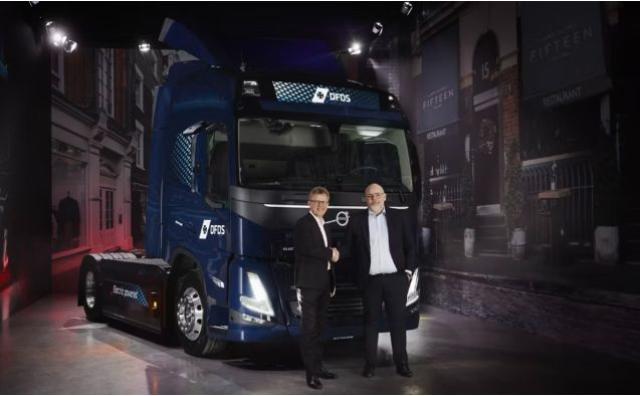DFDS, a prominent shipping and logistics company in Northern Europe, has reinforced its commitment to environmentally friendly transportation solutions with an order of 100 electric trucks from Volvo Trucks.
This procurement brings DFDS’s total Volvo electric truck fleet to 225 units, marking the largest company fleet of heavy electric trucks in Europe.
The decision to expand its electric truck fleet underscores DFDS’s dedication to reducing its environmental footprint amid increasing demand for sustainable transport solutions. Having previously acquired 125 heavy electric trucks from Volvo, DFDS now aims to further enhance its green credentials by integrating an additional 100 electric trucks into its operations.
Currently, 95 Volvo electric trucks are operational across various European locations, including Sweden, Denmark, Lithuania, Belgium, and the Netherlands, with the remaining 30 slated for delivery throughout 2024.
The company’s transition to electric trucks has already yielded positive results, with a reduction of 1,516 tonnes of greenhouse gas emissions recorded by the end of 2023.
The deployment of the electric trucks, featuring updated and more energy-efficient models of Volvo FH Electric and FM Electric, will span nine markets across Europe, Roger Alm, President of Volvo Trucks, said.
DFDS’s target of electrifying at least 25 percent of its truck fleet by 2030 aligns with its goal of driving the transition to more sustainable road transport.
Niklas Anderson, Executive Vice President of DFDS’s Logistic Division, emphasized the importance of expanding the electric truck fleet in not only reducing the company’s climate impact but also in supporting other businesses striving to decarbonize their supply chains.
A portion of the newly acquired electric trucks will be utilized for transporting goods to and from the Volvo Trucks assembly plant in Gothenburg, further facilitating sustainable logistics practices.

